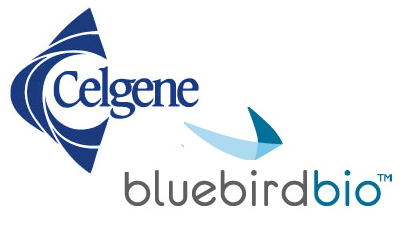
Bluebird Bio and Celgene posted phase 1 results of investigational drug bb2121 Sunday, which could potentially make it a “groundbreaking CAR-T therapy” for multiple myeloma, the companies said.
“The responses achieved in this relapsed and refractory patient population, combined with the tolerable safety profile, reinforce the potential role of bb2121 as a groundbreaking CAR-T therapy in multiple myeloma,” said Dave Davidson, the chief medical officer at Bluebird Bio.
The findings were presented at the American Society of Hematology (ASH) Annual Meeting in the U.S. Monday.
The open-label CRB-401 study evaluated the drug’s safety and efficacy in 21 multiple myeloma patients whose cancer did not respond or returned after treatment.
All patients in the study had been heavily treated with other therapies and had at least one prior autologous stem cell transplant. All 21 patients had previous treatment with Revlimid (lenalidomide) and Velcade (bortezomib), 91 percent with Pomalyst (pomalidomide) and KYPROLIS (carfilzomib), and 71 percent with DARZALEX (daratumumab). 29 percent were unresponsive to all five therapies, the companies said.
The study divided the group into four dosage cohorts. Excluding the lowest, or inactive, dosage group, 17 out of 18 patients (94 percent) achieved an objective response, 89 percent had at least a very good partial response, and 56 percent had a complete response.
Nine out of 10 patients also did not have remaining cancer cells, a significant cause of cancer relapse, after treatment.
Median PFS data has not yet been reached, the companies said.
No patients experienced dose-limiting toxicities after treatment in the median follow-up period of 15.4 weeks. In the dose escalation phase, 71 percent of patients had cytokine release syndrome. Neutropenia (86 percent), anemia (57 percent), and thrombocytopenia (43 percent) were the most common treatment-emergent Grade 3-4 adverse effects, according to the study.
The study also had two deaths due to cardiac arrest and myelodysplastic syndrome, respectively.
“To see these responses after one treatment with bb2121 in a heavily pre-treated patient population is very promising,” said James Kochenderfer, a primary study investigator from the National Cancer Institute. “We are hopeful that bb2121 may become an important therapy in the fight against multiple myeloma, which remains an insidious and incurable disease.”
The U.S. Food and Drug Administration designated the investigational second-generation chimeric antigen receptor (CAR) T cell therapy with a breakthrough therapy status, the companies said. There are only two FDA approved CAR-T therapies for other blood cancers, developed by Novartis and Gilead, as of this month.

